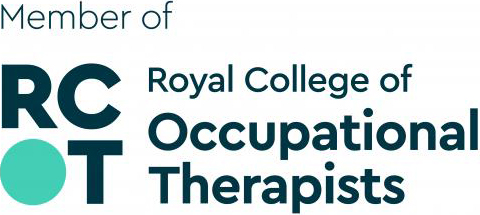Mental Health & Wellbeing
Waite Wellbeing

About me
I’m Louisa, I specialise in helping tweens, teens, parents and adults to ditch self-doubt and cultivate confidence to achieve their full potential. I have 14 years’ experience in practice and have also completed further training in Coaching, Solution Focused and Cognitive Behavioural Therapies and more recently Eye Movement, Desensitization and Reprocessing (EMDR) psychotherapy for trauma.
I also support clients experiencing a range of dis-ease and psychological distress. This can range from difficulties such as anxiety, stress, overwhelm, low self-esteem, perfectionism and depression to imposter syndrome, burnout and the impact of enduring childhood trauma.
Who I Work With
I work with those aged 10 plus, teens, parents and adults who struggle to have faith in their abilities and feel burdened or overwhelmed with anxiety or self-doubt. These difficulties can have a chronic, debilitating impact on our everyday routine or sometimes only surface during significant life events. These may include periods of change or prolonged stress, such as prior to exams, interviews or presentations and can lead to feelings of vulnerability, crisis, inadequacy and incompetence.


My sessions are ideal for those who are struggling to manage worrying thoughts or to overcome limiting beliefs. These difficulties often hinder us from flourishing and thriving and hold us back from achieving our true potential. If you’re experiencing the impact of chronic or fluctuating low self-esteem, overwhelm, negative self-narrative, debilitating over-thinking, difficulties with decision making or various insecurities and are ready to find freedom from this then Wellbeing Coaching is for you!
Theoretical Models
I use various theoretical models, frames of reference & modalities to inform my work including:

What is wellbeing and why’s it worth it? Current research, challenges and it’s effect on general performance

Mentally healthy workplaces, spaces and teams

Wellbeing at work – impact of posture, DSE assessments, digestion and diet

Managing conflict and effective communication skills

What is stress – the good, the bad and the ugly, influencing factors, work-based stressors and management tools

Sleep hygiene – nourishment and narratives

Trauma and the stress response – why they wreak havoc on productivity and strategies to support
Difficulties Supported

Performance anxiety

General Anxiety

Chronic Stress & Overwhelm

Anger Management

Emotional Dysregulation

Imposter Syndrome / Self-doubt

Low Self-esteem

Carer Fatigue

Reduced Assertiveness Skills

Adverse Childhood Experiences

Trauma (including PTSD)

Depression or Low Mood

Shyness & Social Anxiety

Challenging Life Transitions

Emotionally-based School Avoidance
If you would like further information regarding any of the above treatments, or would like to book an appointment, please contact me.
Your Questions Answered
How do I work with you?
I offer a free 15 minute online consultation to explore your needs, and to establish if we’d be suited to working together. If we agree, we then organise a time and date to commence your first session and confirm where you’d like to attend; online, or in person in my session space in north Carlisle.
How much do sessions cost?
Sessions cost £85 per hour & £42.50 per half hour. Please note, first sessions are always 1 hour in duration to allow us to have sufficient time to explore the root cause of your difficulties. Sessions of EMDR also require a session duration of 1 hour to allow for time to effectively deliver this protocol.
How many sessions will I need?
Most clients I work with require a course of 6-12 sessions for optimum results, frequency and duration of which will vary depending upon their individual needs and budget. Some clients may also opt to access top-up sessions where they have experienced a recent, new trauma or where they are enduring some challenging life transitions.
How do I pay for a session?
Session payment is required 48 hours in advance of appointments and is made via bank transfer.
EMDR Explained
The mind can often heal itself naturally, in the same way as the body does. Much of this natural coping mechanism occurs during sleep, particularly during rapid eye movement (REM) sleep. Francine Shapiro developed Eye Movement Desensitisation and Reprocessing (EMDR) in 1987, utilising this natural process in order to successfully treat Post-traumatic Stress Disorder (PTSD). Since then, EMDR has been used to effectively treat a wide range of mental health problems.

Contact Cumbria Wellbeing Hub
Your data will never be shared with any third party without your written consent.
What do my clients say?
Names are hidden to respect the anonymity of the client
